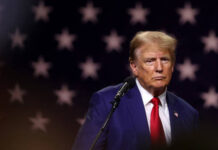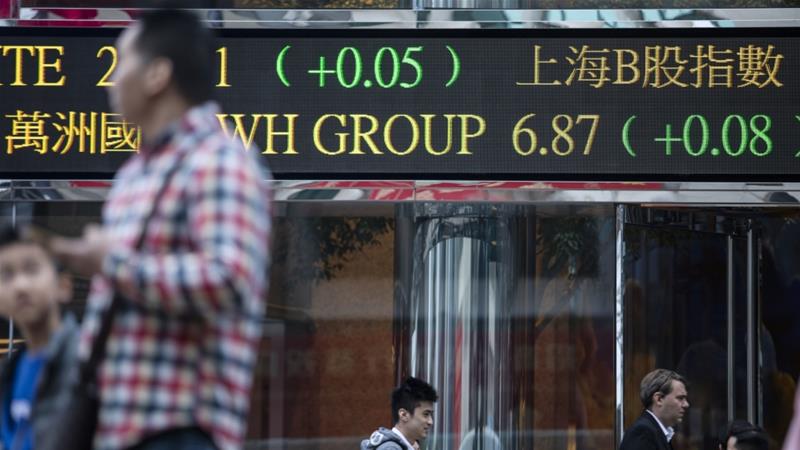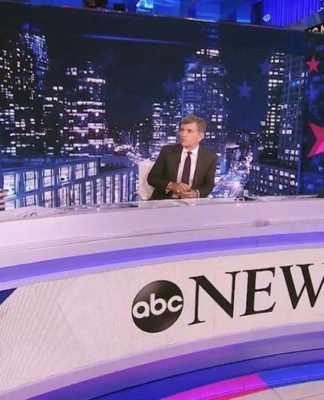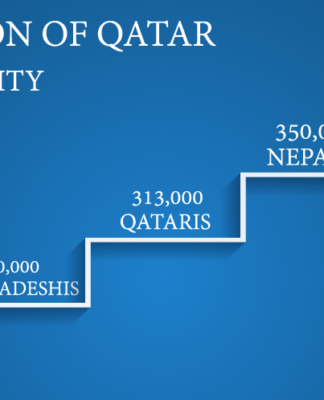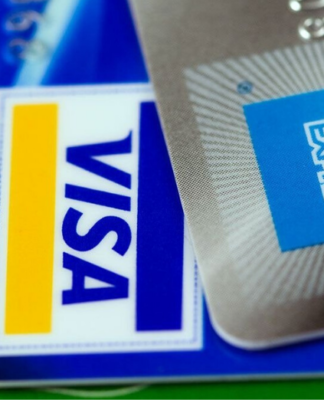Oil prices rose on Thursday, recouping some of the heavy losses from the previous session as the market rebalanced after the United States and Iran looked to defuse a potential Middle East crisis.
Prices had soared in response to the killing of an Iranian general in an American air attack last week and Iran‘s retaliatory attack on US forces in Iraq on Wednesday, before diving more than 4 percent when the two countries quickly ratcheted back tensions, hitting a three-week low in the previous trading session.
More:
Brent crude futures rose 55 cents, or 0.8 percent, to $65.99 a barrel by 01:09 GMT after tumbling 4.1 percent on Wednesday. Prices are now slightly lower compared with the period before the killing of Iranian military commander Qassem Soleimani that sparked the crisis.
US oil added 61 cents, or 1 percent, to $60.22 after falling nearly 5 percent in the previous session.
US President Donald Trump on Wednesday dialled back on days of threatening commentary and said Iran was “standing down” after the rocket attacks that left no casualties, with Tehran say the attacks “concluded” its response to the Soleimani killing.
Oil prices also came under pressure on Wednesday after a surprise build-up in US crude stockpiles.
JP Morgan bank maintained its forecast for Brent to average $64.50 a barrel this year.
“The impact on oil prices will depend on (the) extent of supply disruption versus available spare capacity, global oil inventories and reaction to oil price from US producers,” the bank said in a commodities research note.
Asian shares tracked earlier gains on Wall Street on Thursday as investors’ nerves calmed over tensions in the Middle East.
Japan’s Nikkei opened 1.6 percent higher, putting stocks back where they were on Tuesday. MSCI’s broadest index of Asia-Pacific shares outside Japan rose 0.1 percent.
Australian shares added a percentage point, climbing to their highest mark for the year so far and sitting close to a record high hit in December.
“I think today is a bit of a relief rally,” said Shane Oliver, Chief Economist at AMP Capital in Sydney.
“Yesterday, investors were fearing the worst, that this was the escalation now underway. The news overnight has been more along the lines that Iran pulled its punches and Trump is toning things down,” he said. “Which is seen by investors as substantially reducing the risk of a war.”
On the other hand, safe-haven currencies such as the Japanese yen and Swiss franc retreated on Thursday, reversing gains made after Wednesday’s Iranian rocket attacks.
The US dollar traded at 109.08 yen, jumping back sharply from a three-month low of 107.65 yen touched on Wednesday.
The Swiss franc, another safe-haven currency, also followed a similar path.
The US dollar rose to 0.9738 franc from Wednesday’s low of 0.96655 while the euro bounced off to 1.0814 franc from 21-month low of 1.07825 set on Wednesday.
Gold, often sought at time of significant military conflict as an ultimate store of value, also dropped to $1,556.10 per ounce ($44,114.65 per gramme) after hitting a seven-year high of $1,610.90 per ounce ($45,668.21 per gramme).
SOURCE: aljazeera.com







